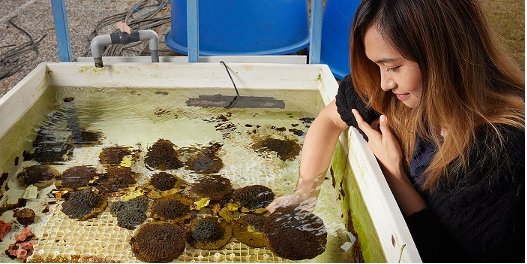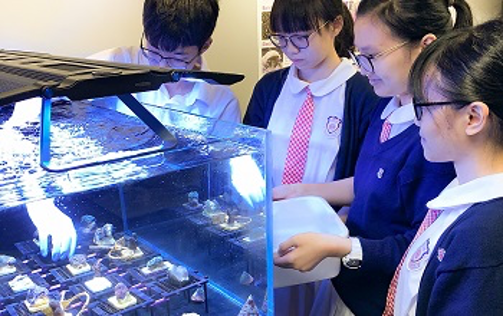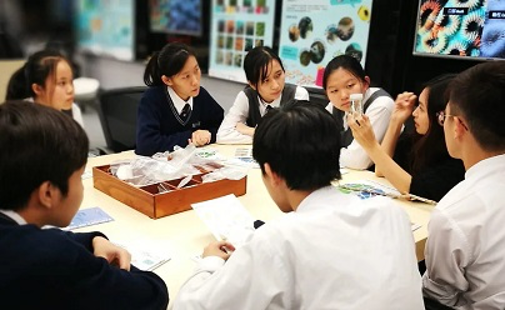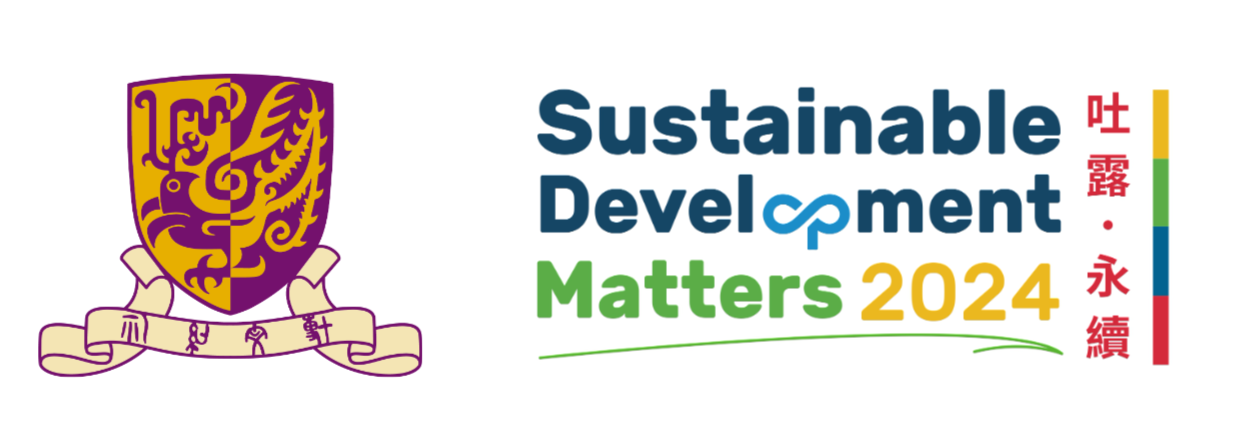SDG 14| Life Below Water
Conserve and sustainably use the oceans, seas and marine resources for sustainable development
As the world’s largest ecosystem, the ocean is fundamental to human existence, providing sustenance, energy, and water. Despite its critical importance, alarming statistics reveal that 90% of significant fish populations have been depleted, and 50% of coral reefs have been decimated. Human selfishness is exhausting ocean resources beyond their capacity for renewal. CUHK has committed itself to marine conservation by spearheading research and educational programs that actively involve the broader community in safeguarding our oceans.
Curriculum
6 related courses were offered in the 2023–24 academic year.
Policies
In response to the significant decline in shark populations globally, the University implemented its No Shark’s Fin Policy in 2012 to halt the consumption of shark fins. Subsequently, the Sustainable Procurement Policy and Sustainable Procurement Guidelines were extended to prohibit all purchases by CUHK that include shark fins, bluefin tuna, humphead wrasse, Hong Kong grouper, and sturgeon caviar. These restricted items may not be included in meals served at campus restaurants or at any events sponsored or arranged by the University.
Reviving local degraded aquatic ecosystem
Corals are of essential importance in sustaining marine biodiversity and building climate resilience. However, coral coverage in Hong Kong has declined significantly since the 1980s. The Coral Academy, based at the Simon F.S. Li Marine Science Laboratory at CUHK, is an initiative focused on coral conservation, restoration, and public education. The Academy has joined hands with WWF Hong Kong in an attempt to restore Hong Kong’s degraded coral communities. The partnership plans to see at least 1,000 coral fragments rescued, nurtured, put back in the sea, and then closely monitored by a research team from CUHK. The Academy specializes in novel coral restoration strategies, which are designed to mitigate coral population declines while preserving genetic diversity.

Supporting aquatic ecosystems through education
The Academy organizes a range of engaging activities including seminars, workshops, lab visits, citizens science programmes and public exhibitions, which provide participants with a deeper knowledge of the vibrant marine biodiversity and coral communities that thrive within the waters of Hong Kong. It also fosters a deep connection between local corals and students through hands-on involvement in coral restoration efforts through the School Coral Nursery Education Programme and AFCD x Coral Academy Coral Nursery Education Programme. During the past five years, The Academy has successfully engaged with at least 60 local schools, over 30,000 students and teachers, and over 300,000 public through extensive education outreach efforts.


PREVIOUS
Climate Action
SDG 13
NEXT
Life on Land
SDG 15
